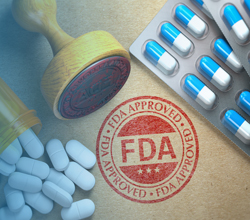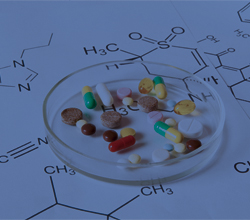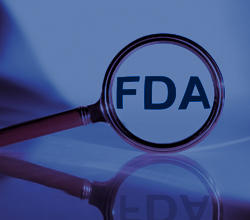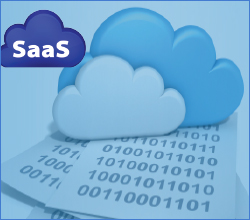
Data Integrity and Privacy: Compliance with 21 CFR Part 11, SaaS/Cloud, EU GDPR
 David Nettleton
David Nettleton
 90 Mins
90 Mins
Product Id: 701687
This 21 CFR Part 11 compliance training will guide you through the requirements of Part 11 and will also explain its 3 primary areas: SOPs, product features and validation (10 step risk based approach).

You have a BI Positive or Product Sterility Positive - Now What?
 Gerry O Dell
Gerry O Dell
 75 Mins
75 Mins
Product Id: 703288
This webinar explains what actions should be taken following an unexpected positive result in a sterility test on a biological indicator (BI) during performance qualification or routine testing. It also addresses the actions to take when a test of sterility demonstrates unexpected growth during validation or routine dose audits. The various items that should be investigated to determine the root cause and the follow up to the investigation will be covered.

Human Error Investigations, Root Cause Determination and CAPA Effectiveness
 Ginette M Collazo
Ginette M Collazo
 90 Mins
90 Mins
Product Id: 704314
This training program will offer attendees an understanding of human error, its factors and causes. The program will also identify the regulatory and business importance of human error prevention and define the process to manage human error deviations.

Current Trends in FDA Inspections
 Michael Ferrante
Michael Ferrante
 90 Mins
90 Mins
Product Id: 703485
This webinar will focus on the current trends in FDA inspections and guidelines that can be implemented to ensure compliance with the latest quality and regulatory requirements. Attendees will learn how to prepare for an FDA inspection to avoid Warning Letters.

Ethylene Oxide (EO) Sterilization Basics for R&D Engineers
 Gerry O Dell
Gerry O Dell
 90 Mins
90 Mins
Product Id: 701272
This Sterilization training will provide valuable information to companies that design products for terminal sterilization with ethylene oxide.

Excel Spreadsheets; Ensuring Data Integrity and 21 CFR Part 11 Compliance
 David Nettleton
David Nettleton
 75 Mins
75 Mins
Product Id: 701582
Learn how to use Microsoft Excel spreadsheets for GXP data to ensure compliance with 21 CFR Part 11 and reduce validation cost and time.

Computer System Validation (CSV) vs. Computer System Assurance (CSA): Aligning the Agile Methodology to the GAMP®5 "V" Model and System Development Life Cycle (SDLC) Methodology
 Carolyn Troiano
Carolyn Troiano
 120 Mins
120 Mins
Product Id: 706921
As part of the Case for Quality program US FDA Center for Devices and Radiological Health noted how an excessive focus by industry on compliance rather than quality may be diverting resources and management attention toward meeting regulatory compliance requirements vs. adopting best quality practices. There has also been a lower than anticipated investment in automation and digital technologies, which could greatly improve quality and process control. A key element is a risk-based, product quality and patient-centric approach to Computer System Assurance (CSA) vs. the traditional Computer System Validation (CSV) waterfall approach. This encourages critical thinking based on product and process knowledge and quality risk management over prescriptive documentation driven approaches.
This is where FDA determined that “WHAT” is required can be done (the “HOW”) in different ways and does not have to be according to the “checklist” mindset of most CSV work, where you create documents without specifically addressing the risk of potential failure of each requirement.
GAMP®5 supports the use of incremental, iterative, and evolutionary approaches including agile, for development of custom applications. Keys to success include a robust Quality Management System and well trained and highly disciplined teams following well-defined processes supported by tools and automation.

Troubleshooting Ethylene Oxide (EO) Processes
 Gerry O Dell
Gerry O Dell
 75 min
75 min
Product Id: 701679
Not every parameter in the EO sterilization process in critical for the determination of the product’s sterility assurance level (SAL). This presentation will outline the various parameters and what actions should be taken when they are not compliant to the process specification. These actions can be as simple as a rationale for release to as complicated as the need for the qualification of a new sterilization process. How to decide the actions to take will be addressed along with the reasons behind the decisions so that an accurate and complete justification of your decision can be made for both management and regulatory agencies. The rationales for both conventional and parametric release will be addressed.

Conducting Effective Quality Audits: Beyond Audit Checklists
 Michael Ferrante
Michael Ferrante
 60 Mins
60 Mins
Product Id: 703539
This webinar will teach attendees best practices for conducting effective quality audits to ensure regulatory compliance. Learn how to avoid potential pitfalls during the audit process.

Effective Systems for Change Control in the Pharmaceutical Industry
 David L Chesney
David L Chesney
 90 mins
90 mins
Product Id: 705002
This webinar will help you understand GMP requirements for change control from a pharmaceutical manufacturing perspective, the purpose of change control and what types of changes are or are not subject to change control. Participants will learn how to execute and implement a change in a regulated environment.

Total Organic Carbon Analysis for Cleaning Validation in Pharmaceutical Manufacturing
 Joy McElroy
Joy McElroy
 90 mins
90 mins
Product Id: 705929
In this cleaning validation webinar attendees will learn the Total Organic Carbon (TOC) feasibility, method validation and transfer from the laboratory to the manufacturing floor, as well as reviewing a feasibility study of multiple, difficult to oxidise or low solubility organic compounds.

Designing an Effective Cleaning Validation for Reusable Medical Devices in Today's Regulatory Environment
 Gerry O Dell
Gerry O Dell
 90 Min
90 Min
Product Id: 701929
This training will review the best practices establishing and conducting a cleaning validation for reusable medical devices. It will also address the requirements of ANSI/AAMI ST 98.

Sterile Filtration of Pharmaceutical Products - Validation and Regulatory Requirements
 Roger Cowan
Roger Cowan
 60 Min
60 Min
Product Id: 703727
It is important that the sterile filtration process is fully understood and properly validated for your particular application. The process requirements and validation needs differ based on the filtration requirement. This webinar will offer attendees a comprehensive understanding of the same while emphasizing the different types of sterilizing filtration available and their application to your particular system. For instance, the application of sterile filtration to use-point compressed air will be discussed in detail.

Technical Writing for the Pharmaceutical, Medical Device and Biotech Industries
 Joy McElroy
Joy McElroy
 120 Min
120 Min
Product Id: 704531
This technical writing training program will offer attendees an understanding of how the reporting process supports products in research, development, and in the marketplace. This virtual session will highlight the mandates for documentation set forth by the regulators, such as the FDA, the ISO, and other governing bodies. The program will train attendees on effectively reviewing and revising documents and assessing your audience, in effect producing effective written correspondence.

Trial Master File and Clinical Data Management Regulated by FDA
 Carolyn Troiano
Carolyn Troiano
 60 Min
60 Min
Product Id: 705360
This FDA compliance training will cover in detail the new requirements for trial master files including documents related to clinical trials that are required to be prepared, collected and maintained as part of the TMF.

CMO Supplier Quality Agreements - How to Comply with New FDA and EU Guidelines for Contract Drug Manufacturers
 Roger Cowan
Roger Cowan
 60 min
60 min
Product Id: 703476
This webinar will include a detailed discussion of Contract Manufacturing Organizations (CMO) Quality Agreement topics such as change control, documentation, facilities and equipment, lab controls, sub-contracting, etc. Attendees will learn how to comply with new FDA and EU guidelines for contract drug manufacturers.

Preapproval Inspection and Submission to the FDA
 John E Lincoln
John E Lincoln
 90 Min
90 Min
Product Id: 706998
This webinar is intended to provide guidance regarding the FDA program to approve an NDA or an ANDA or PMA only if the methods used in, and the facilities and controls used for, the manufacture, processing, packing, and testing of the drug or Class III device are found adequate to ensure and preserve the drug's identity, strength, quality, and purity, or the device's safety and performance.

Good Documentation Practice and Record Keeping Regulations (FDA & EMA)
 Dr. Afsaneh Motamed Khorasani
Dr. Afsaneh Motamed Khorasani
 60 Min
60 Min
Product Id: 705583
Good documentation Practices (GDP) is an essential factor that needs to be closely followed by the personnel in any regulated environment as a process for a successful project completion including observations of unanticipated responses that are required to be accurately recorded and verified. This 60-min Webinar covers the essentials of GDP, its definition, purpose, and importance. Then expands on general rules and principles of GDP (US & EU), General tips for Laboratory Notebook documentation and finally discussing GDP enforcement by regulatory bodies in different countries with some examples of FDA citations.

HVAC and GMP Environmental Control - for Pharmaceutical Cleanrooms
 Roger Cowan
Roger Cowan
 60 Min
60 Min
Product Id: 703831
Environmental control of pharmaceutical cleanrooms is essential to the manufacture of a quality product. Control of such conditions as airborne particulate, microorganisms, temperature, humidity, differential pressure, airflow, air velocity and personnel is crucial to protect the product from contamination. Therefore, the design, validation and ongoing monitoring of a cleanroom HVAC system are necessary to assure the quality and safety of the pharmaceutical product. This training program will offer attendees a proper understanding of the cleanroom environment and its testing requirements according to international regulatory standards from a compliance perspective.

US, EU and Japan GMP Requirements: Practical ICH Area Differences, Healthcare Authority Inspection Focus
 Robert J Russell
Robert J Russell
 90 Min
90 Min
Product Id: 702029
This ICH GMP 90-minute webinar will provide your company the opportunity for comprehensive understanding of ICH Drug / Biologic GMP and the nuances and differences between the three main ICH triumvirate regions (U.S. EU and Japan). It will cover the key areas of how ICH was established, it’s goals and objectives, expectations of the healthcare authorities involved and practical differences that you will experience in a GMP inspection of a facility by FDA, an EU Competent Authority or PMDA.


























